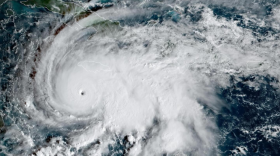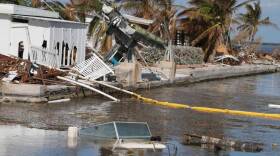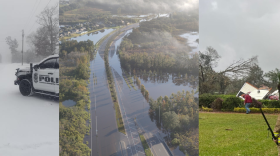-
The World Meteorological Organization has retired the name Melissa from its Atlantic basin naming lists after the Category 5 devastated Jamaica in 2025.
-
The Monroe County Sheriff’s Office and the Florida Department of Law Enforcement have identified two sets of human remains from separate unresolved cases — including a Hurricane Irma victim.
-
In response to the storm, Jamaican Women of Florida has ramped up support to Melody House, a house for abandoned and abused girls in Montego Bay. The area was one of the worst hit by the hurricane.
-
Florida’s 2025 weather was relatively subdued, with no hurricane landfalls and roughly half the usual number of severe weather reports.
-
The slightly above-average hurricane season had "a lot of odd attributes," according to a Miami researcher.
-
The 2025 Atlantic hurricane season runs through the end of the November, but without any expected development, forecasters have released their seasonal summaries.
-
Shaggy, the Grammy-winning reggae artist, has stepped up to help Jamaica following Hurricane Melissa. He used ChatGPT to determine what supplies were needed and quickly organized relief efforts.
-
In the aftermath of Hurricane Melissa — one of the strongest storms in recorded history — several South Florida organizations and local governments are stepping up to help Caribbean nations affected by the storm.
-
South Florida organizations are rapidly mobilizing a comprehensive relief campaign for Jamaica as Hurricane Melissa approaches the island nation.
-
The white sandy beaches along a swath of Florida’s Gulf Coast were battered by three hurricanes last year, leading to a multimillion-dollar effort to repair a coastline that is the region’s economic engine.
-
A rule requiring many storm-damaged homes to be demolished or rebuilt to the latest flood-resistant standards has exacted personal and cultural costs.
-
As budget cuts loom for the National Oceanic and Atmospheric Administration, the Environmental Defense Fund create a new map providing the location and explanation of work done by hundreds of NOAA offices and research projects across the country.
Play Live Radio
Next Up:
0:00
0:00
Available On Air Stations












